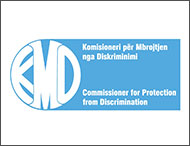Did you just come out of the closet?

Coming out
Accepting yourself as a gay, lesbian, bisexual or trans may sound but for most people, it is not. For LGBT people coming out is the process of understanding, accepting and recognizing their sexual orientation or gender identity. Coming out includes the exploration of personal identity as well as their separation with others. Here is included adapting with reactions and behaviour of society towards LGBT people.
LGBT people have to come to terms with what it means to be different in a society which assumes that all individuals are heterosexuals and that it reacts negatively to people who are “deviating from the norm”. The process of coming out is very personal and occurs in different ways for different people. Some people are aware of their sexual and gender identity from a very early age. Others reach the right level of awareness after a long time.
Coming out is a process which can last an entire lifetime. Meanwhile, teenage years are challenging for most people, LGBT persons often face bigger challenges due to homophobia and stigmatization. Due to discrimination and lack of positive role models, many LGBT people feel lonely and unsafe. Fear of refusal is also bigger among LGBT persons due to social prejudices towards them.
Why coming out is important?
Knowing your sexual or gender identity is the first step towards self-acceptance. As a starter, to understand your sexual identity, think of it as a line, which varies in two directions, one as exclusively homosexual and the other as exclusively heterosexual. For this, you can search online the Alfred Kinsey Scale. By exploring your sexual identity you can see where you are positioned in that scale.
Regarding self-acceptance, it could help to focus on the positive aspects of LGBT culture such as music, art, theatre, literature, subcultures etc. Also it helps to look for positive models within the LGBT community. Focusing on positive models does not mean that you are ignoring the fact that society continues to be homophobic or that discriminatory behaviour does not have an effect on LGBT persons. However, it helps to understand that such prejudice comes from the outside environment and that they do not derive directly from you. Part of developing a positive image for yourself is also to understand that your own internal homophobia is also based on external factors, and that they are the product of such prejudice which have created an impact on you with the passing of years.
Benefits of coming out
If you are taking into consideration the possibility of coming out you should keep in mind certain things. Some of the outcomes of coming out could be increased self-esteem, more honesty in your lives and a higher sense of personal integrity. Also, you may benefit from a sense of relief and lower tension when you stop denying or hiding such an important aspect of your life. Coming out can bring a bigger freedom to express yourselves, a more positive image of the self and healthier and more honest relationships with others.
Steps you may take for a successful coming out
- Visit webpages, forums and read about other people’s coming out stories;
- Talk to LGBT people who have taken this step and learn more about their experiences;
- Do not isolate yourself with exclusively heterosexual groups. Try to know other LGBTI people and get to know LGBT culture;
- Communicate with LGBT organizations in the country, follow their activities and publications;
- Read queer literature and follow LGBT themed cinematography;
- Do not judge or insult, LGBT people who have already come out;
- Meet a psychologist or social worker who you know that is not homophobic so that they can help you in difficult moments of doubt, loneliness, stress or depression;
- Do not surround yourself with negative people who might discourage you in this process. Identify friends and supporting people in your circle and try to communicate with them;
- Keep in mind that not all people that you might come out to will support you. Prepare yourself emotionally both for acceptance and refusal. Do not feel discouraged if a friend abandons you. If they do not accept you for what and who you are they have never been your friends in the first place.
- Do not isolate yourself in LGBT circles online. Even though they might help you to find new friends, often they turn into vicious circles where people try to keep their identities hidden. Do not forget that many people in social networks might not have good intentions.













